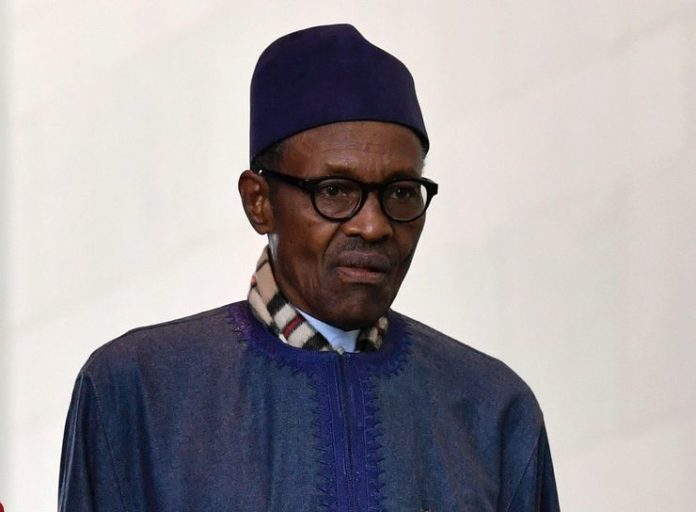With the caliber of individuals and groups joining the debate on restructuring Nigeria, realising the idea may eventually come earlier than anticipated, General Editor, EMEKA ALEX DURU, writes.
How should the Nigerian nation be restructured? And when would the exercise take place? These seem the dominant questions in public discourse, currently.
It is not as if, a position has been taken on restructuring the country. In fact, attitude of high officials of the government, remains the traditional insistence on the indissolubility and inviolability of the unity of the nation.
Acting President, Professor Yemi Osinbajo, harped on this position during the litany of meetings he had with groups and individuals from different parts of the country, in the last couple of weeks. Before then, President Muhammadu Buhari, had with a tinge of swagger, told those dreaming of nursing the idea of tinkering with the current Nigeria’s structure to perish the thought.
Buhari had in an obvious broadside to the Indigenous Peoples of Biafra (IPOB) and other groups seeking self-determination, warned that keeping Nigeria one is a task that must be done.
“I assure them that the saying by Gen. Yakubu Gowon (a former Head of State) that ‘to keep Nigeria one is a task that must be done’ is still relevant. In those days, we never thought of oil, all we were concerned about was one Nigeria. So, please pass this on to the militants – that one Nigeria is not for negotiation and they had better accept it”, the President thundered.
Incidentally, while Buhari, and like minds, are bent on the present quasi-federal framework of the country that is more of utilitarian arrangement, some Nigerians and groups, think differently.
The Igbo socio-cultural organisation, the Ohanaeze Ndigbo, and the pan-Yoruba socio-political body, Afenifere, had for instance, while he talked faulted his position on the unity of the nation.
The organisations, had emphatically told Buhari that the unity of the country was negotiable.
Within the same period, Nobel laureate Wole Soyinka had, described the oneness of Nigeria as “very negotiable”.
IBB joins the fray
To further deepen the discussion, by the close of last week, the rank of those favourably disposed to restructuring the country, had increased with weighty support from former Military President, Ibrahim Badamasi Babangida (IBB).
Babangida who keyed into the debate in his Eid-el-Fitri message to Muslims, had argued the Nigerian federation, as currently structured, is in need of reforms that will emphasise the individual strength and advantages of the component units so that governments can really work to improve the lives of the citizens.
In what appeared a departure from the current suffocating arrangement, IBB reportedly said, “If we have repeatedly done certain things and not getting the desired results, we need to change tactics and approach, and renew our commitment. It is our collective responsibilities to engender a reform that would be realistic and in sync with modern best practices.
“For example, restructuring has become a national appeal as we speak, whose time has come. I will strongly advocate devolution of powers to the extent that more responsibilities be given to the states while the Federal Government is vested with the responsibility to oversee our foreign policy, defence, and economy.
He stressed that though restructuring and devolution of powers may not provide all the answers to Nigeria’s developmental challenges, the exercise will help to reposition the mindset of Nigerians as they generate new ideas and initiatives that would make the union worthwhile.
The support, coming from Babangida, who had seen action both as a soldier during the civil war and as former head of state, is seen as a major shift in what had been considered a hardline position of the Northern military and political elite on the topic.
The North had been seen as a major stumbling block in moving the country from its present analogue structure that has not favoured the component parts, especially the South.
The case against the existing arrangement is that it is skewed in favour of some parts against the others. It is also seen to be encouraging indolence and dependency syndrome among states, especially with the nauseating tendency of governors running to the centre at the end of the month for the so-called federal allocation.
This, it has been argued, has prevented the governors from thinking inwards on ways of generating revenues for administering the states.
Besides, with the allocation shared on the basis of the number of local governments in the states, those with high productive capacity but with fewer number of councils, have always been shortchanged by their counterparts with larger numbers without corresponding outputs.
Atiku leads the North
Before now, the lone voice from the North for restructuring the country, had been that of Atiku Abubakar, former Vice President. He had in the agitation, made suggestions that involved changes to the allocation of powers, responsibilities and resources among the states or zones and between them and the federal government.
Atiku had particularly called for devolution of more powers and resources from the federal government as well as de-emphasizing federal allocations as the source of sustenance of states.
Even as he reinstated his principled position on the issue, the erstwhile Vice President, had five years ago, at an event organised by Leadership newspapers, said: “There is indeed too much concentration of power and resources at the centre. And it is stifling our march to true greatness as a nation and threatening our unity because of all the abuses, inefficiencies, corruption and reactive tensions that it has been generating.
“There is need, therefore, to review the structure of the Nigerian federation, preferably along the basis of the current six geopolitical zones as regions and the states as provinces. The existing states structure may not suffice, as the states are too weak materially and politically to provide what is needed for good governance.”
The current state of affairs, he had maintained, leaves too much power with the central government, with the result that the states are so much incapacitated to the point of not delivering purposeful governance.
Ekwueme dictates the pace
The advocacy by Atiku, is to some extent, in line with the present six geo-political structures that former Vice President, Alex Ekwueme, enunciated in the 1994-1995 Constitution Conference. Ekwueme, had on basis of economic, political, social and consanguine considerations, recommended structuring the country into the South East, South West, South-South, North West, North East and North Central zones. Not even his critics could fault the fantastic idea, especially on the ease of administration and political convenience it offered. Analysts also insist that the suggestion, when fully implemented, would guarantee true federalism and fiscal federalism.
He even elaborated on why he came up with the idea, at a recent engagement. In his words: “every disappointment could be a blessing. After my incarceration at Kirikiri Prisons in 1984 by the military, it afforded me an opportunity to reflect deeply on Nigeria’s problems. I came out with the idea of six geo-political zones which I pushed for in a national conference much later and it became a convention and has taken care of minorities in the South and North.
“What Nigeria negotiated for and agreed with the colonial masters before independence was a regional government where each had a constitution which was annexed by the Republican constitution in 1963. The Republican constitution then provided 50% revenue sharing formulae for the regions, 30% to a distributable pool, 20% to the Centre.
“There is need for us to return to the basics of what we inherited from our founding fathers”
Other Nigerians react
Leader of Afenifere Renewal Group, Ayo Adebanjo, had in his opinion, said; “Nigeria must be restructured to correct the humongous damage done to the nation’s constitution by the military and to put a stop to the various acts of uprising today including those of Niger Delta Avengers, MASSOB and IPOB”.
Former Information Minister, Professor Jerry Gana, also argued in similar vein. He said; “our founding fathers were right by agreeing to a federal structure which is the best governance structure that can guarantee peace, equity and justice”.
In lending his voice to the issue, former Anambra state governor, Peter Obi, had submitted: “I support the restructuring of the country on the basis of fiscal federalism”, adding that there is need to address the high cost of governance in the country.
ACF weighs in
It was, perhaps on account of the apparent growing support for the idea, that the Arewa Consultative Forum (ACF), which had hitherto lent support to Buhari in standing against restructuring, made a measured shift on the topic, on Wednesday, June 28, 2017.
In a release by its spokesman, Muhammadu Ibrahim Biu, the organisation remarked, that restructuring a complex, big and diverse country as Nigeria, is a serious business that must take account of the views of all its citizens, and not just of those that shout the loudest.
“A genuine restructuring must therefore be just, fair and equitable to all. Furthermore, it must strengthen our democracy, unity, peace and development of the Nigerian components”, the statement added.
With the ACF finally coming into the debate even without a particular structural framework, advocates of the agenda, can reasonably be said to be making serious in-roads in changing the mindset of those previously opposed to it. And the debate continues.
- Advertisement -
- Advertisement -











